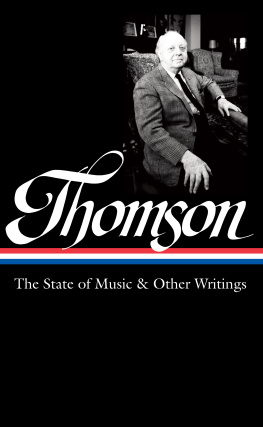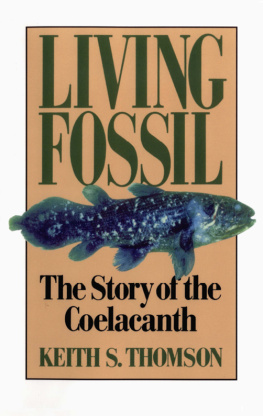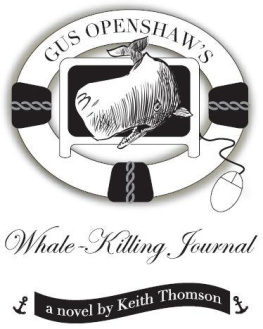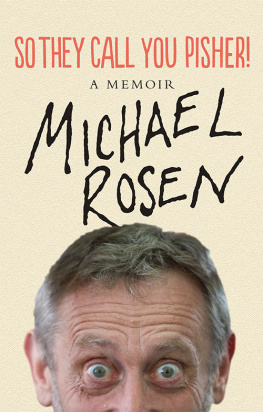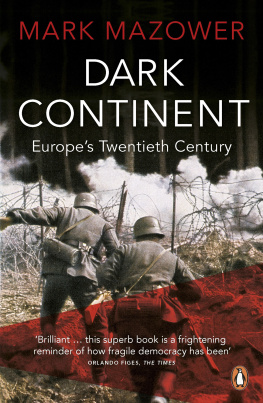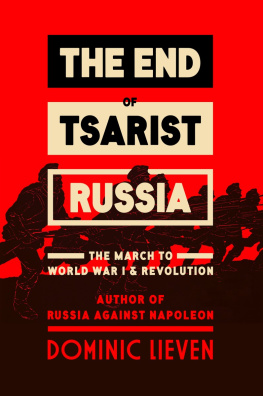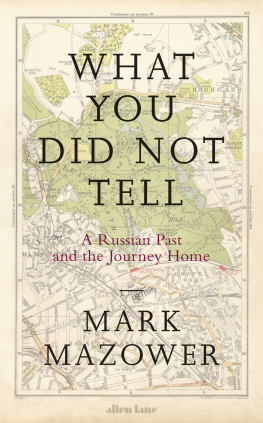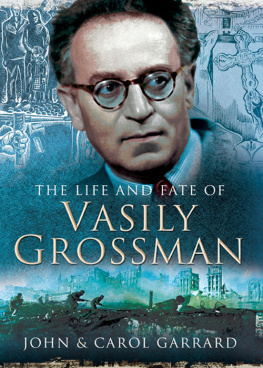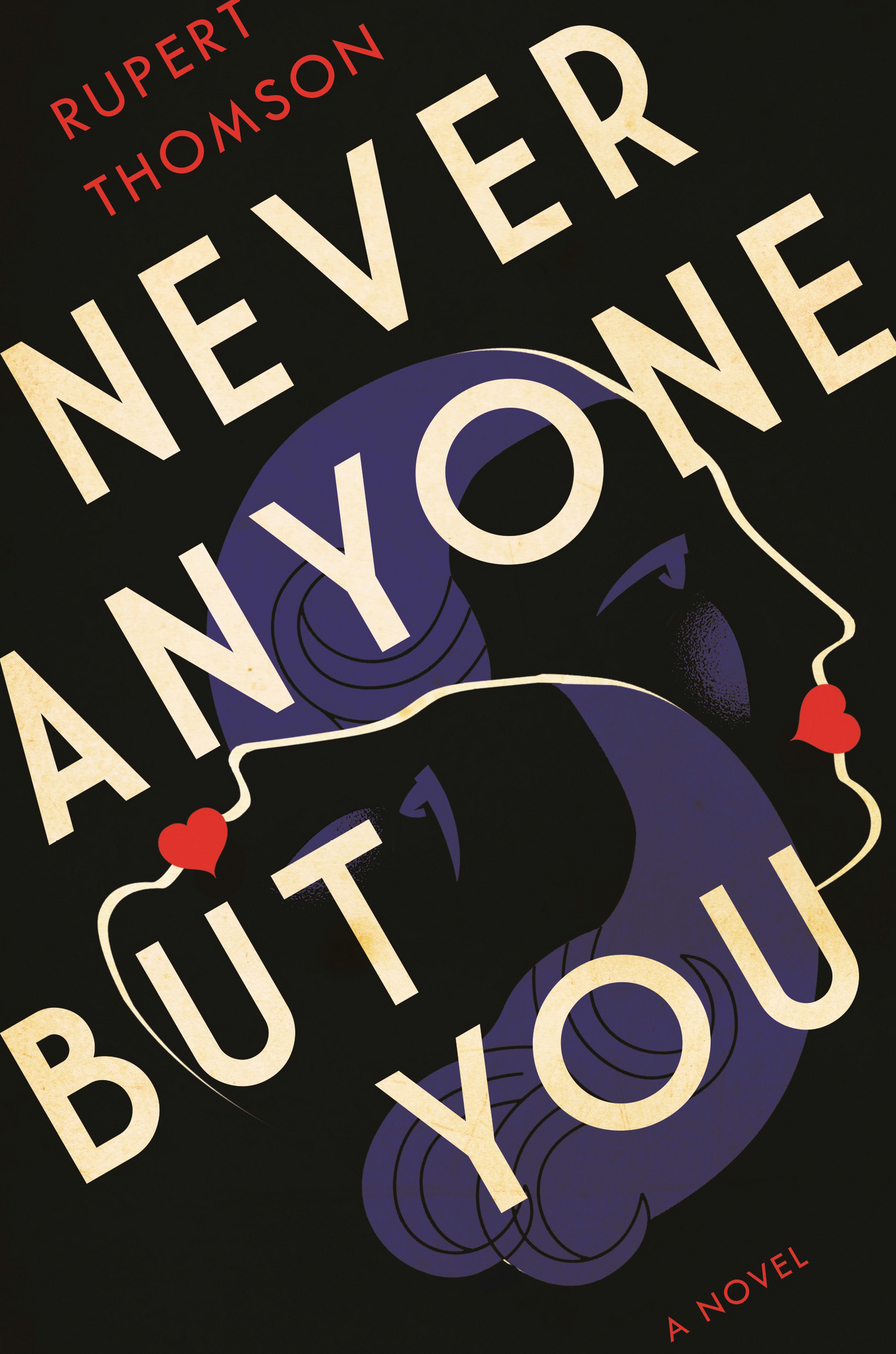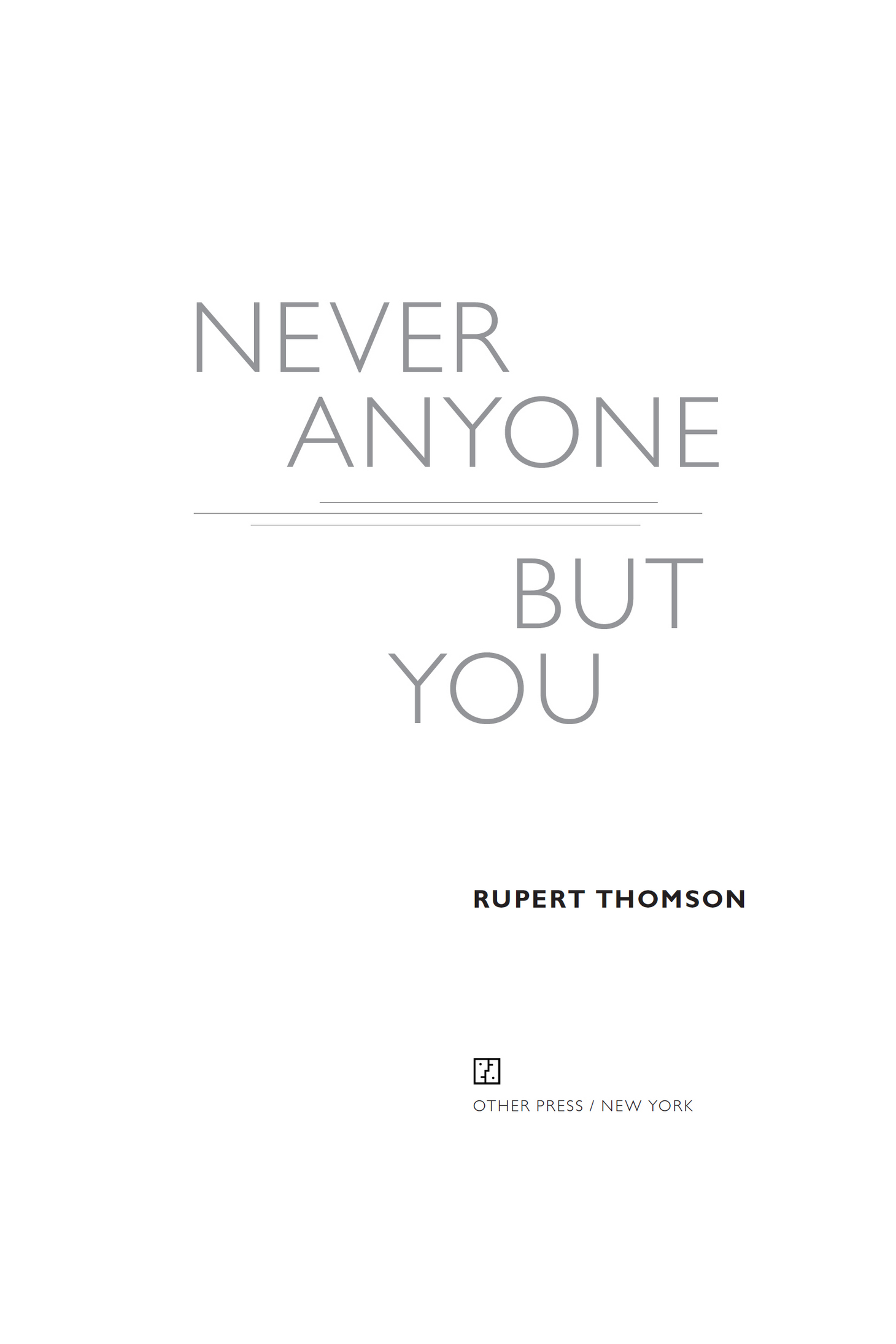Contents
Copyright 2018 Rupert Thomson
First epigraph on from Collected Poems in English and French, copyright 1977 by Samuel Beckett.
Used by permission of Grove/Atlantic, Inc. Any third party use of this material, outside of this publication, is prohibited.
Second epigraph on
Photos of Lucy Schwob (top) and Suzanne Malherbe (bottom) on courtesy of the Jersey Heritage Collections.
Production editor: Yvonne E. Crdenas
Text designer: Jennifer Daddio
All rights reserved. No part of this publication may be reproduced or transmitted in any form or by any means, electronic or mechanical, including photocopying, recording, or by any information storage and retrieval system, without written permission from Other Press LLC, except in the case of brief quotations in reviews for inclusion in a magazine, newspaper, or broadcast. For information write to Other Press LLC, 267 Fifth Avenue, 6th Floor, New York, NY 10016.
Or visit our Web site: www.otherpress.com
The Library of Congress has cataloged the printed edition as follows:
Names: Thomson, Rupert, author.
Title: Never anyone but you / Rupert Thomson.
Description: First American edition. | New York : Other Press, 2018
Identifiers: LCCN 2017030118 | ISBN 9781590519134 (hardcover) | ISBN 9781590519141 (ebook)
Subjects: LCSH: Malherbe, Suzanne, 1892-1972Fiction. | Cahun, Claude, 1894-1954Fiction. | Women artistsFiction. | LesbiansFiction. | GSAFD: Biographical fiction. | Historical fiction. | Love stories.
Classification: LCC PR6070.H685 N49 2018 | DDC 823/.914dc23 LC record available at https://lccn.loc.gov/2017030118
Ebook ISBN9781590519141
Publishers Note: This is a work of fiction.
Names, characters, places, and incidents either are the product of the authors imagination or are used fictitiously.
v5.3.1
a
Contents
ROBERT LUCIEN WOKLER
19422006
AN EVENING SWIM
1940
I was in the sea when the first bomb fell. Some way out, and floating on my back. Staring up into a cloudless sky. It was a Friday evening towards the end of June. As one of the planes banked to the south, over Mont Fiquet, I could make out stark black shapes on its wings. Swastikas. Fear swerved through me, dark and resonant, like a swarm of bees spilling from a hive. Upright suddenly, I trod water, my breathing rapid, panicky. Like everybody on the island, I had been dreading this moment. Now it had come. There were several planes, and they were flying high up, as if wary of anti-aircraft fire. Didnt they know that all our troops had been evacuated and only civilians remained? A wave caught me, and I went under. The ocean seemed to shudder. When I came up again a column of smoke was rising, treacle black, above the headland to the east.
I began to swim back to the shore. My limbs felt weak and uncoordinated, and even though the tide was going in it seemed to take a long time to make any progress. A knot of people huddled on the beach. Others were running towards the road. One of them tripped and fell, but nobody waited or even noticed. Claude had swum earlier. She would be upstairs, smoothing cream into her arms and legs. Edna, our housekeeper, would be preparing supper, a tumbler of neat whiskey on the windowsill above the sink. Our cat would be sprawled on the terrace, the flagstones still warm from the sunor perhaps, like me, he had been alarmed by the explosions, and had darted back into the house. It seemed wrong that the waves paid no attention to what was happening, but kept rolling shorewards, unrushed, almost lazy.
I was wading through the shallows when I heard another distant thump. It sounded halfhearted, but a fluttering had started in my stomach. Normally, I would dry myself on the beach, savoring the chill on my skin, the last of the light, the peace. Instead, I gathered up my shoes and my towel and hurried back towards the house, feeling clumsy, nauseous.
As I reached the slipway, two more planes swooped over the bay, much lower now, their engines throbbing, hoarse. I cowered beside an upturned rowing boat. The chatter of machine guns, splashes lifting into the air like a row of white weeds. I felt embarrassed, though, a forty-seven-year-old woman behaving like a child, and stood up quickly. I entered our garden through the side door. Claude was standing on the grass bank that overlooked the beach. The hose lay on the lawn behind her, water rushing from the nozzle. Dressed in a white bathing suit, she had one hand on her hip. In the other she held a lighted cigarette. She had the air of a general surveying a battlefield. They might have been her planes, her bombs.
Were you in the sea? she asked.
I nodded. Yes.
I thought you were upstairs.
No.
So you saw them?
I nodded again.
I saw everything, she said. I even saw the faces of the pilots.
Her voice was calm, and she was giving off a kind of radiance. I had seen the look before, but couldnt remember where or when. I stood below her on the lawn, my hair dripping. The short grass prickled between my toes.
I have a strange feeling, something like elation. She faced east, towards Noirmont. Smoke dirtied the pure blue sky. I think its because were going to be tested.
You dont think weve been tested enough?
Not like this.
Earlier that month, we had heard rumors that Churchill was prepared to abandon the Channel Islandsthey were too close to mainland France, too hard to defendbut there had been no mention of any such decision on the BBC. The news bulletins were full of bluster. The Nazis had reached the Seine, we were told, but our boys would be waiting on the other side, and they would give as good as they got. The next thing we knew, Nazi motorcyclists were spotted on the Normandy coast, near Granville, and our boys had retreated to Dunkirk. In mid-June, once the troops stationed on Jersey and Guernsey had been shipped back to England, the civilian population was offered the chance to evacuate. Long queues formed outside the Town Hall, and the telephone lines jammed as islanders asked each other for advice. It was a time for drastic measures. Two dogs and a macaw were found shot dead in a back garden in St. Helier. A man arrived at the airport with a painting by Picasso under his arm. His wife was wearing a sable coat, even though the temperature was in the upper seventies. They had no other luggage. Half the population put their names down for evacuationmore than twenty thousand peoplebut the Bailiff, Alexander Coutanche, declared that he was staying, come what may, and in the end only six or seven thousand left. There followed a week when things seemed to return to normal. The sense of calm was abrupt and eerieyou could almost hear the grass growing on the lawns of all the empty housesbut we knew it wouldnt last, and now the Nazis had bombed the island it was clear the occupation was only days away, or even hours.
Perhaps you were right, I said. Perhaps it would have been more sensible to leave
Claude shook her head. We already had that discussionand anyway, its too late now. There arent any boats.
I know. Its just
She stepped down off the grass bank. Come here. She took the towel and began to rub me dry. Youre trembling.


